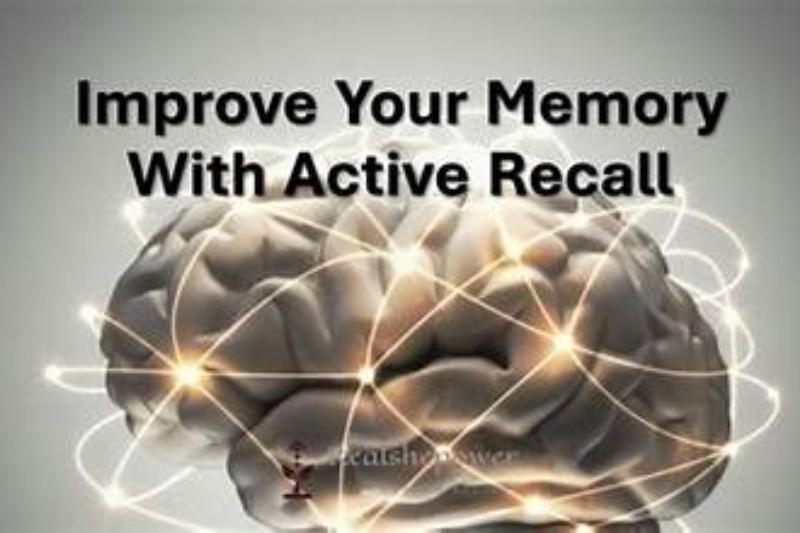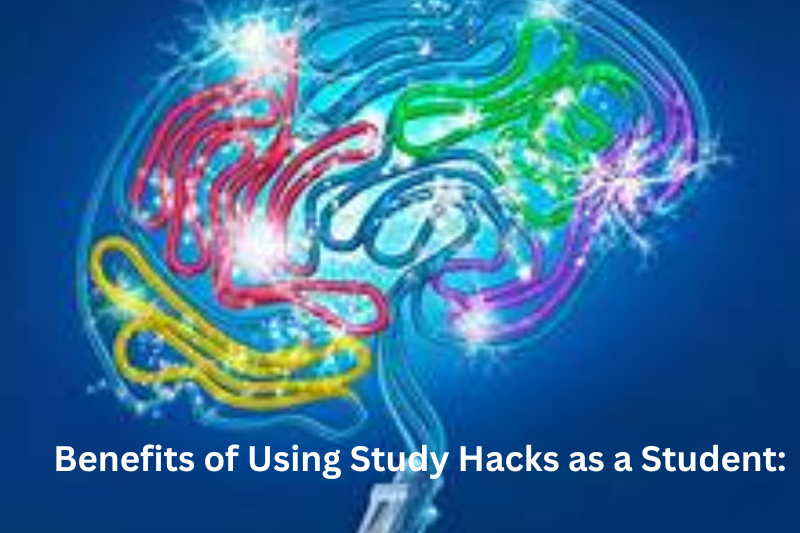Hey there, struggling with long study hours and still feeling like you’re not getting anywhere? You’re not alone! Most students find themselves stuck in a cycle of reading and re-reading without real retention. But don’t worry, I’m here to share some study hacks for students that will transform the way you learn.
These aren’t just random tips—they’re proven techniques that save time, improve focus, and actually help you remember stuff. I’ll also be honest and tell you both the benefits and drawbacks of each hack. So, let’s get right into it.
1. Active Recall — The Ultimate Memory Booster

What is it?
Active recall means testing yourself instead of passively reading your notes. You engage your brain to pull information out, which strengthens memory.
How to do it?
- Read a topic.
- Close the book.
- Try to write or say everything you remember.
- Recheck what you missed and repeat.
Benefits:
- Stronger long-term memory.
- Helps identify weak areas quickly.
- Saves time during revision.
Drawbacks:
- Can be mentally tiring.
- Requires discipline; not as “easy” as passive reading.
2. Pomodoro Technique — Study in Short, Focused Bursts
What is it?
A time-management method where you study for 25 minutes, take a 5-minute break, and repeat. After 4 rounds, take a longer break.
Benefits:
- Prevents burnout and fatigue.
- Increases focus during short sessions.
- Breaks make studying feel less overwhelming.
Drawbacks:
- 25-minute slots may feel short for deep tasks.
- Frequent breaks might disrupt your flow if you’re “in the zone.”
3. Feynman Technique — Teach What You Learn
What is it?
Explain a topic in your own simple words as if you’re teaching someone else. This reveals how well you really understand it.
Benefits:
- Forces deep understanding.
- Simplifies complex topics.
- Great for subjects that require conceptual clarity.
Drawbacks:
- Time-consuming.
- Needs extra effort to “pretend-teach” or find someone to explain to.
4. Mind Maps — Visualize Your Learning
What is it?
A diagram that visually organizes information. You put the main topic in the center and branch out sub-topics around it.
Benefits:
- Helps in understanding relationships between concepts.
- Makes revision quick and visual.
- Ideal for visual learners.
Drawbacks:
- Can become messy with large topics.
- Time-consuming to create for every subject.
5. Flashcards & Spaced Repetition — Quick Revision Hack
What is it?
Flashcards are simple Q&A cards for quick reviews. Spaced repetition involves reviewing them over increasing intervals.
Benefits:
- Perfect for memorizing facts, vocabulary, formulas.
- Easy to use in spare moments.
- Apps like Anki automate spaced repetition for you.
Drawbacks:
- Not ideal for complex concepts.
- Needs consistency over weeks to see results.
6. Distraction-Blocking Apps — Stay Focused
What is it?
Apps like Forest, Focus@Will, or Cold Turkey that block social media or distracting websites during study sessions.
Benefits:
- Reduces procrastination.
- Builds self-control.
- Some apps reward you for staying focused (gamified).
Drawbacks:
- Can feel restrictive at first.
- You might still get distracted by your thoughts, even if apps are blocked.
7. Studying Before Sleep — Retain More While You Rest
What is it?
Reviewing important notes right before sleeping helps the brain store that information better.
Benefits:
- Enhances memory consolidation.
- Makes use of “dead time” before sleep.
Drawbacks:
- Not effective if you’re already too sleepy.
- Doesn’t replace deep learning during the day.
8. Healthy Lifestyle — The Base of All Study Hacks
What is it?
Ensuring you get proper sleep, nutrition, hydration, and light exercise regularly.
Benefits:
- Improves brain function and energy.
- Enhances mood and reduces stress.
- Makes all other study hacks more effective.
Drawbacks:
- Requires lifestyle changes and discipline.
- Not an “instant fix” — it’s a long-term strategy.
9. Study Playlists & Ambient Sounds — Focus through Sound
What is it?
Listening to instrumental, lo-fi, or ambient sounds (like rain sounds) to create a productive study atmosphere.
Benefits:
- Blocks out external distractions.
- Can make long study sessions more pleasant.
- Helps in getting into a study rhythm.
Drawbacks:
- Not suitable for everyone (some prefer silence).
- Wrong music choice (lyrics, loud beats) can be distracting.
10. Setting Small, Achievable Goals — Win Big by Starting Small
What is it?
Breaking down large tasks into smaller, manageable chunks and celebrating small wins.
Benefits:
- Keeps motivation high.
- Makes large tasks feel less intimidating.
- Helps in tracking progress easily.
Drawbacks:
- Needs self-discipline to avoid slacking.
- Can sometimes lead to spending too much time on micro-tasks.
You may also like to read these posts:
Study Materials for Exams: A Complete, Detailed Guide to Smarter Preparation
Open Educational Resources (OER): Everything You Need to Know
Effective Study Techniques: Your Complete Guide to Smarter Learning
How to Focus While Studying: The Ultimate Guide to Sharpen Your Mind
Benefits of Using Study Hacks as a Student:

- Saves time while improving retention.
- Reduces stress during exam periods.
- Helps develop effective study habits.
- Makes learning more interactive and engaging.
- Boosts confidence as you start seeing better results.
Drawbacks of Study Hacks for Students:
- Not every hack works for everyone; it’s trial and error.
- Some hacks require initial effort to set up (like flashcards or mind maps).
- Without discipline, hacks like Pomodoro or distraction blockers won’t work.
- Can become overwhelming if you try to apply all hacks at once.
Final Thoughts
The truth is, studying doesn’t have to be boring or overwhelming. These study hacks for students are designed to make your learning process efficient and even enjoyable. However, remember—no hack will work unless you stay consistent and adapt them to fit your personal style. Try out a few, mix and match, and see what helps you perform your best.








